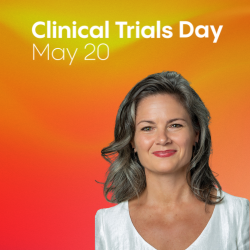A new study confirms what many suspected about a tumultuous year for conducting clinical trials: Patient recruitment and retention dropped across the industry in early 2020, due to global quarantines and stay-at-home orders. However, the study also found decentralized clinical trials (DCTs) rapidly returned to pre-pandemic recruitment and retention levels while traditionally designed clinical trials had yet to recover through September 2020.
The study was conducted by THREAD, a global provider of DCT and eCOA services, and Lokavant, a clinical trial intelligence company. They compared a group of DCTs using THREAD tools versus a group of trials that did not leverage DCT-related technologies.
“DCTs were more resilient and their actual bounce back was quite significant” when compared to traditional trials, said Rohit Nambisan, president of Lokavant. DCTs “were able to return to their pre-COVID-19 enrollment and discontinuation rates within two to four months of widespread global lockdowns,” he added.
“Virtual visits cannot replace in-person site visits for every study, but they can be used in place of some in-person visits (a hybrid decentralized study) and create a more flexible and patient-centric model to drive improved patient engagement,” according to the new study.
The authors of the study hypothesize that trials leveraging THREAD’s decentralized trial platform rebounded quickly because they were already utilizing, or were able to rapidly add, decentralized technology features and services. The study also shows that DCT-enabled trials were able to pivot quickly as different geographies shut down. Traditional clinical trials had greater difficulty doing so, in part because trial protocols, study technologies, and schedule of event designs precluded the adoption of decentralized approaches.
While the so-called “COVID catalyst” appears to have spiked interest in DCTs, some in the industry wonder if the generally tech-averse clinical trial industry will go back to some of its old-fashioned ways as the pandemic subsides. However, the study sponsors are bullish on DCT technology now and tomorrow.
“It’s hard to think we will go back” as an industry, said John Reites, CEO of THREAD.
“I think it will be riskier to not consider DCTs in future trial situations,” Nambisan added.
Author: Michael Causey



